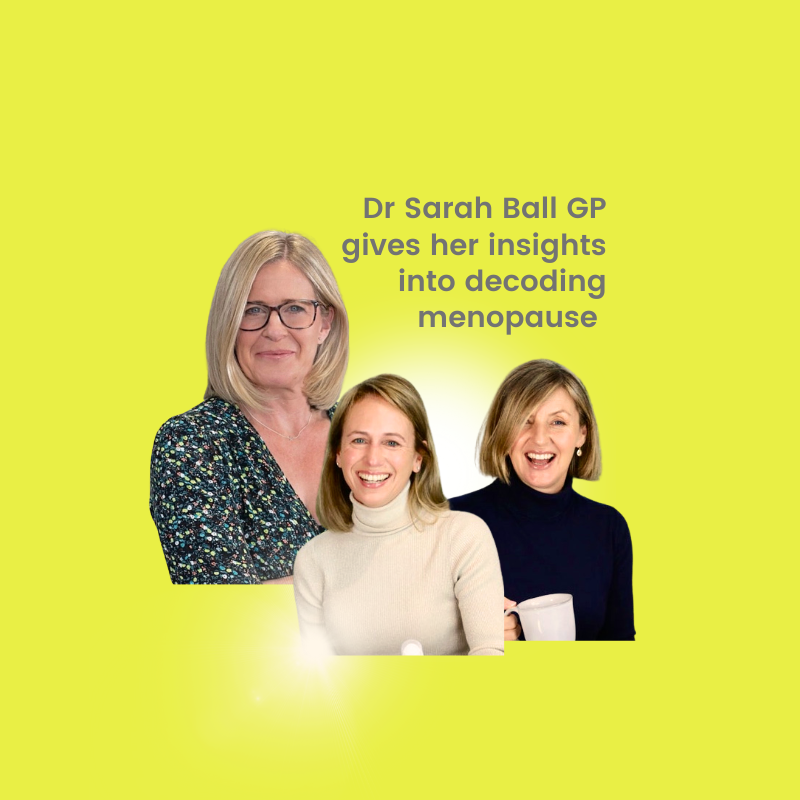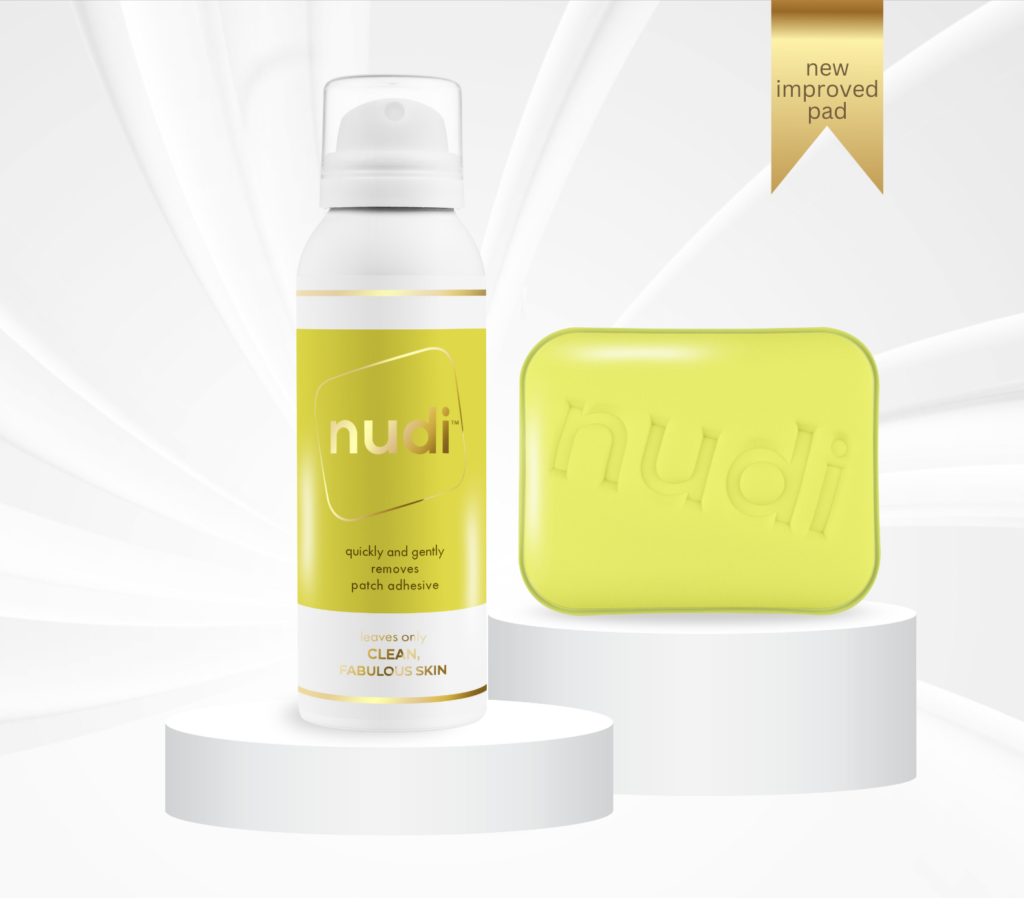
Introduction
Menopause is a significant life stage that comes with a unique set of challenges. Often, women are left searching for clarity on their symptoms, treatments, and how to regain control over their health. To explore these pressing issues, we spoke with Dr. Sarah Ball, a leading menopause specialist, who works at Health in Menopause clinic.
With years of experience supporting women through menopause, Dr. Ball emphasizes the importance of a tailored, holistic approach. “Menopause isn’t just about hormones; it’s about the whole picture of health,” she explains. In this blog, we dive into her expert advice on hormone replacement therapy (HRT), lifestyle adjustments, and the crucial role of individualised care.
Meet Dr. Sarah Ball
Dr. Sarah Ball is a British Menopause Society accredited menopause specialist with a private practice in the Midlands, UK. Health in Menopause was established in 2020 during the pandemic and has grown into a trusted resource for women. It offers flexible consultation options, including face-to-face and video appointments, making private expert care accessible to women across the UK.
“Our goal is to empower women with the knowledge and tools they need to thrive during menopause,” says Dr. Ball. The clinic team includes a specialist in breast health, allowing them to offer comprehensive care, including to those with a family history or personal history of breast cancer.
Why Doesn’t HRT Always Work as Expected?
Hormone replacement therapy is often hailed as a game-changer for menopause symptoms, but for some women, it falls short of expectations. “HRT is incredibly effective for many, but it’s not a magic bullet,” Dr. Ball explains.
The reasons HRT may not work as intended can be complex:
- Individual Genetics: Every woman’s body processes hormones differently, leading to varying responses to HRT.
- Lifestyle Factors: Stress, poor diet, excess alcohol and lack of exercise can reduce HRT’s effectiveness.
- Hormonal Imbalances: The ratios of oestrogen, progesterone, and testosterone in HRT can significantly impact outcomes.
Dr. Ball notes that tweaking dosages or switching hormone types can often resolve issues. For instance, some women are sensitive to synthetic types of progesterone, which may cause mood swings or anxiety. Switching to natural progesterone, which often has a calming effect, can make a big difference.
The Holistic Approach: It’s Not Just About Hormones
Dr. Ball emphasizes that while HRT is a vital part of menopause management, it’s only one piece of the puzzle. She compares menopause to a 1,000-piece jigsaw, with HRT making up about 500 pieces. The other pieces involve lifestyle adjustments that support overall health and well-being.
- Nutrition: A nutrient-rich diet can improve how the body responds to HRT. “If you’re eating junk food, your HRT won’t work as well,” says Dr. Ball.
- Exercise: Regular physical activity improves bone density, cardiovascular health, and mood, all of which are crucial during menopause.
- Emotional Health: Spending time with loved ones and engaging in enjoyable activities boosts mood and complements the benefits of HRT.
- Sleep: Quality sleep is critical for overall health, yet many menopausal women struggle with insomnia or disrupted sleep.
Sleep and Breathing: A Game-Changer
One of the most striking points Dr. Ball highlights is the role of breathing in managing menopause symptoms. Many women experience sleep-disordered breathing, such as snoring, which can worsen fatigue, brain fog, and even libido issues.
“Nasal breathing is the most efficient way to oxygenate the body,” she explains. Dr. Ball stresses the importance of retraining the body to breathe properly, especially during sleep. Techniques such as yoga, physiotherapy for breathing, and even guided exercises can be transformative.
For women struggling with snoring, she recommends consulting specialists like Dr. Louise Oliver, who offers tailored breathing therapies. “It’s not just about better sleep; efficient breathing can improve overall health and make HRT more effective,” Dr. Ball adds.
Understanding the Timeline for HRT
When starting or adjusting HRT, patience is key. Dr. Ball advises waiting at least three months before judging its effectiveness.
“Every woman’s journey is different, and it takes time to find the right balance of hormones,” she says. Regular reviews, symptom questionnaires, thinking holistically and open communication with healthcare providers are essential.
The Role of Testosterone in Menopause
Testosterone is often overlooked in conversations about menopause, but it plays a critical role in women’s health. It’s particularly effective for symptoms like low libido, brain fog, and fatigue.
- Current Options: In the UK, testosterone for women is prescribed off-label using male products like Testogel. These require blood test monitoring to ensure the correct dosage.
- Future Developments: Androfeme, a female-specific testosterone cream from Australia, is currently available in the UK on a private basis; but will hopefully gain a license here soon to enable it to become accessible via the NHS too. This will offer women a more precise and convenient option.
Dr. Ball reassures women that side effects like hair loss or excessive body hair are rare when testosterone is prescribed in appropriate doses and balanced with sufficient estrogen.
Managing Heavy Bleeding and Progesterone Dosing
Heavy or unscheduled bleeding is a common concern, especially during perimenopause. Users of HRT can also experience unscheduled bleeding, especially in the early days after starting or when changing dose. Dr. Ball explains that finding the right balance between estrogen and progesterone is crucial, as well as evaluating each scenario to assess when further investigation may be appropriate
- Sequential vs. Continuous Regimes: Before menopause, women often use a sequential regime that includes progesterone for two weeks each month, leading to a scheduled bleed. Postmenopause, a continuous regime should prevent bleeding by keeping the womb lining thin.
- Individual Variations: Factors such as how well a patient remembers to use her HRT correctly, interruptions in usual digestion, pre-existing conditions (e.g., diabetes or polycystic ovary syndrome) and hormone absorption rates can influence bleeding.
Dr. Ball also highlights the importance of monitoring symptoms and adjusting treatment as needed. “What works today may need tweaking at any time in the future,” she says.
The Long-Term Use of HRT
A common question is whether women can stay on HRT for life. Dr. Ball emphasizes that this decision depends on individual needs and goals.
- Short-Term Symptom Relief: HRT can provide significant relief for symptoms like hot flushes and mood swings, which often last on average 4–7 years without treatment; but in some can last much longer or even lifelong.
- Long-Term Health Benefits: HRT supports heart health, bone density, and brain function, reducing the risk of conditions like osteoporosis and heart disease.
Dr. Ball encourages women to weigh any potential risks, such as breast cancer (and is keen to point out that this risk for most of us is usually a perceived one from previous media fear mongering rather than a significant one), against the benefits, which are statistically significant. “Lifestyle choices like reducing alcohol intake, exercising, and maintaining a healthy weight can significantly mitigate risks,” she notes.
Empowering Women Through Education
Education is a cornerstone of Dr. Ball’s approach. She believes that informed women are better equipped to make decisions about their health.
“Understanding your body and the changes it’s going through is empowering,” she says. Dr. Ball recommends using reputable and evidence-based resources, such as books, online tools, and consultations with specialists, to gain a deeper understanding of menopause, ideally in preparation ahead of this time of life.
Key Takeaways
- HRT Isn’t One-Size-Fits-All: Tailoring hormones to individual needs is crucial for success.
- Lifestyle Matters: Diet, exercise, sleep, and emotional health play a significant role in managing menopause.
- Breathing is Vital: Proper breathing techniques can improve sleep, reduce snoring, and enhance overall health.
- Testosterone is Important: When used appropriately, it can address low libido, brain fog, and fatigue.
- Stay Informed: Regular reviews and a commitment to learning can make the menopause journey smoother.
Conclusion
Menopause is a deeply personal journey, and there’s no universal roadmap. With the right tools, including tailored HRT, lifestyle adjustments, and breathing techniques, women can navigate this stage with confidence and resilience.
Dr. Sarah Ball’s expertise underscores the importance of holistic care and education. By addressing the full picture of health, she helps women regain control and thrive during menopause.
For personalized support, Dr. Ball’s Health in Menopause clinic offers flexible consultations and expert care. Whether you’re struggling with symptoms or simply seeking guidance, her compassionate approach ensures you’re never alone on your journey.
Our Products

Adhesive Remover Starter Kit
Designed to remove the most stubborn patch or tape glue from all skin types in a neat travel sized pack .
- Nudi Spray™ 50ml
- Easi Pad™
- Nudi™ Patch Bag
£15

Glue Free Forever!
Subscribe & Save
Enjoy our great value subscription direct to your door without giving glue another thought.
- Nudi Spray™ 100ml
- Easi Pad™
- Cancel anytime
£16

Top Up!
Designed to remove the most stubborn patch or tape glue from all skin types in our larger 100ml can.
- Best Seller
- Nudi Spray™ 100ml
- Easi Pad™
